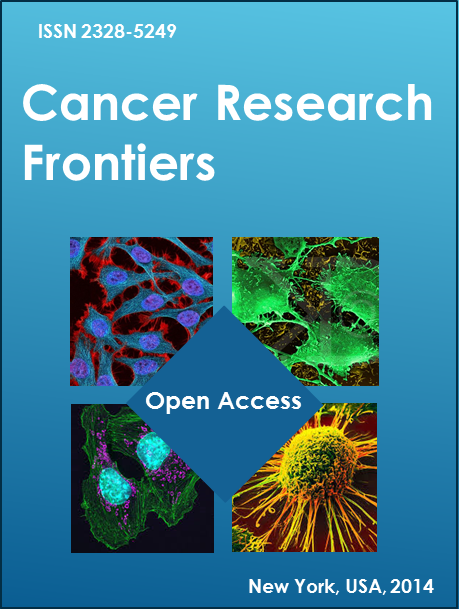Abstract _ Full Text (HTML) _ Full Text (PDF)
Review
Cancer Research Frontiers. 2017; 3(1): 126-143. doi: 10.17980/2017.126
Peptidyl-prolyl isomerase (PPIase): an emerging area in tumor biology
Pulak Ranjan Nath1*
1Laboratory of Pathology, Center for Cancer Research, National Cancer Institute, National Institutes of Health, Bethesda, MD, USA.
*Corresponding author: *Corresponding author: Dr. Pulak Ranjan Nath, Laboratory of Pathology, Center for Cancer Research, National Cancer Institute, National Institutes of Health, 10 Center Drive, Bethesda, MD 20812, USA. Tel:+1 (301) 480 4353, Fax:+1 (301) 480 0611; E-Mail: or
Citation: Pulak Ranjan Nath. Peptidyl-prolyl isomerase (PPIase): an emerging area in tumor biology. Cancer Research Frontiers. 2017; 3(1): 126-143. doi: 10.17980/2017.126
Copyright: @ 2017 Pulak Ranjan Nath. This is an open-access article distributed under the terms of the Creative Commons Attribution License, which permits unrestricted use, distribution, and reproduction in any medium, provided the original author and source are credited.
Competing Interests: The author declares no competing financial interests.
Received May 5, 2017; Revised Sept 10, 2017; Accepted Oct 2, 2017. Published Nov 6, 2017
Abstract
Peptidyl-prolyl isomerase (PPIase) catalyzes the interconversion of a specific Pro-imide bond between the cis and trans conformations. Such conformational interconversion by PPIases at the backbone of key signaling proteins is an emerging area of active research. Two families of PPIases, cyclophilins and FK506-binding proteins (FKBPs), have been extensively studied due to their high affinity for immunosuppressive drugs, cyclosporine A and FK506, respectively. These two families of PPIases and also Pin1 within the parvulin-family mediate temporal and spatial conformational modifications of signaling proteins; therefore, affecting the downstream signaling events. PPIases have recently been implicated in multiple aspects of cell cycle regulation and cellular processes related to a number of human pathologies, including cancer. This review highlights the causal relationship between PPIases and malignant transformation and progression. Based on the current understanding, it is postulated that a cancer intervention strategy based on the development of isomerase-specific inhibitors is not far away.
Keywords: PPIases, Cyclophilin, FKBP, Pin1








